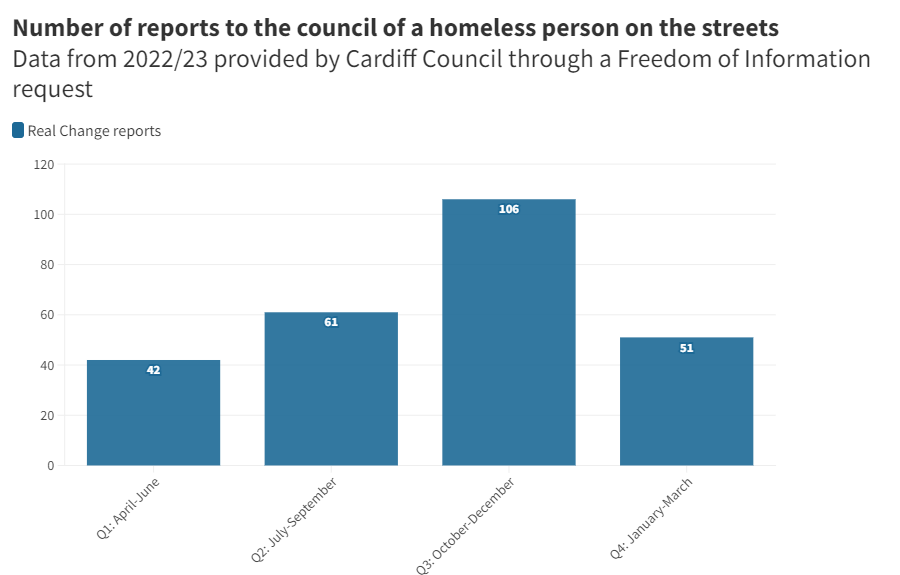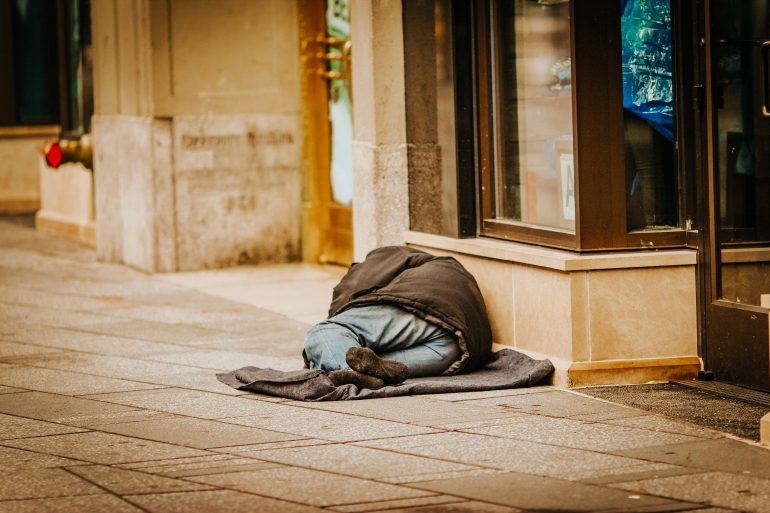Around a third of homeless people given somewhere to stay in Cardiff are choosing to return to the streets, an FoI reveals
THIRTY five percent of homeless people given free accommodation by Cardiff Council chose to return to the streets after less than a month, a Freedom of Information request has revealed.
Under the council’s Real Change scheme homeless people are provided with accommodation and are able to stay as long as they like – or until they find a permanent home.
In the 10 months to February 2023, 160 people were given accomodation.
The council told The Cardiffian that 65% of those 160 people managed to stay in the accommodation for at least a month. It is unclear how long they stayed overall.
“The percentage of rough sleepers housed in the previous month who have maintained their accommodation for 2022-2023 was 65%,” said the council.
In a follow-up statement Cardiff Council said: “Because individuals sleeping rough often have complex needs, including mental health issues, it can take time for them to accept the help being offered and to be ready to access accommodation.
“The council has a dedicated assessment area, where each individual’s needs are assessed before they are referred to appropriate accommodation and support.”
Cardiff Council set up the Real Change campaign in 2020 to help improve its homelessness services in the city.
The campaign asks the public to send a text message with details about someone they are concerned about on the streets. The texting initiative is designed to help monitor the city’s homeless population as well as trying to get them off the streets for good.
One homeless charity says many people given accomodation leave because they do not feel safe there.
“Most of these people have mental health issues so there is an issue with them being pushed into accommodation that feels unsafe,” said Kelly De Winton, vice-chair of Helping Our Homeless.
“The issue with providing rough sleepers temporary accommodation is that they often get no support. It is difficult because there is no distinction between different people’s needs.
“When it comes to housing rough sleepers, sometimes the housing is communal and you will see 30 people that are misusing drugs housed together and unfortunately encourage each other.”
“But when homeless people are offered accommodation on their own it leads to loneliness. The homeless community in Cardiff is tight-knit and being separated suddenly means that their support network quickly disappears. Sometimes they just go back to the streets. It’s a difficult task finding the best solution.”

In Cardiff Council’s Housing Support Programme strategy for 2022 to 2026, the council recognised the challenge of helping rough sleepers to remain in accommodation and are hoping to help rough sleepers move towards independent living.
But Helping Our Homeless does not see this as a realistic aim.
“Cardiff Council says it wants to end homelessness by 2026 but there is no way. We are seeing more and more different people on the street,” said Ms De Winton.
“We used to feed 30 people every Monday but now the demand is usually 65 people. Our charity only has the provisions to give out 50 hot meals a week. It is really quite distressing.
“More needs to be done in terms of provisions for homeless people not just with complex needs, like drug addiction, but also with low-complex needs, like mental health issues.”



